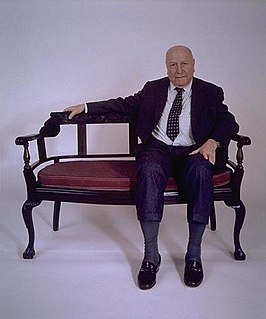A Quote by Lady Gaga
Don't say I hate institutionalised religion - rather than saying I hate those things, which I do not, what I'm saying is that perhaps there is a way of opening more doors, rather than closing so many.
Related Quotes
Saying 'I notice you're a nerd' is like saying, 'Hey, I notice that you'd rather be intelligent than be stupid, that you'd rather be thoughtful than be vapid, that you believe that there are things that matter more than the arrest record of Lindsay Lohan. Why is that?' In fact, it seems to me that most contemporary insults are pretty lame. Even 'lame' is kind of lame. Saying 'You're lame' is like saying 'You walk with a limp.' Yeah, whatever, so does 50 Cent, and he's done all right for himself.
But I'd rather help than watch. I'd rather have a heart than a mind. I'd rather expose too much than too little. I'd rather say hello to strangers than be afraid of them. I would rather know all this about myself than have more money than I need. I'd rather have something to love than a way to impress you.
How different things might be if, rather than saying "I think I'm in love," we were saying "I've connected with someone in a way that makes me think I'm on the way to knowing love." Or if instead of saying "I am in love" we say "I am loving" or "I will love." Our patterns around romantic love are unlikely to change if we do not change our language.
You and I must realize that the English language is filled with words that, in addition to their literal meanings, convey distinct emotional intensity. For example, if you develop a habit of saying you 'hate' things - you 'hate' your hair; you 'hate' your job; you 'hate' having to do something - do you think this raises the intensity of your negative emotional states more than if you use a phrase like 'I prefer something else'?
To then say that our own actions in combating evil have led to evil, is nothing more than saying, "Islamic terrorists are somewhat justified, at least we can understand why they hate us because we've done things to make them hate us. ... We have been evil ourselves, and we are evil and that justifies them being evil."
We kind of reduce our responsibility to not saying the N-word and to condemning the Klansmen, rather than saying many of our celebrated institutions are systemically racist. Many of our institutions that deal with law enforcement or controlling the bodies of Black people are systemically racist. Many of our educational institutions are systemically racist. Many of our corporate institutions are systemically racist. We don't have those conversations, so things don't change.




































